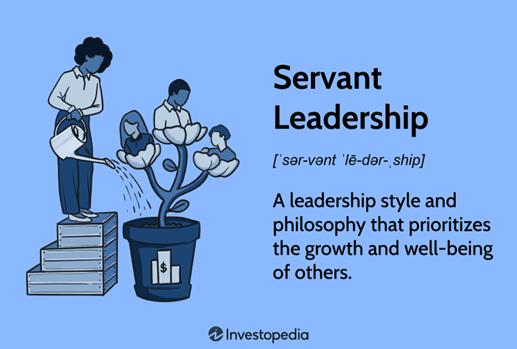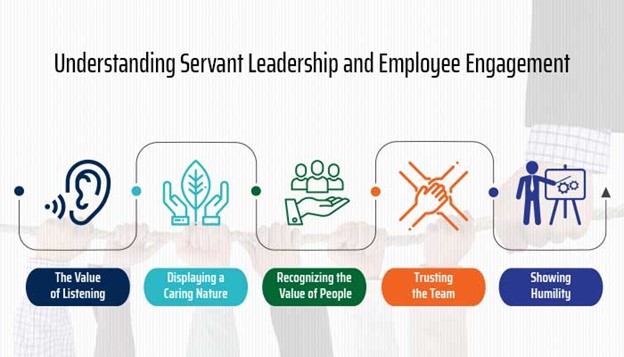Welcome to WordPress. This is your first post. Edit or delete it, then start writing!
Read Full Article


















We create AI chatbots for any kind of website to help you streamline your communication process.
Building virtual reality is our forte. We can provide you with an outstanding virtual reality project.
Defending yourself against cyber attacks is best done with advanced, self-learning artificial intelligence. We offer custom AI-based security services.
For cloud infrastructure, we have a highly trained team to automate your business development with AI.


“The great leader is seen as servant first” – Robert K. Greenleaf, 1977
Servant Leadership is a different kind of leadership style in which the major role of leaders is to be a servant to their followers. According to this philosophy, the prime focus of the one who lead is to serve the needs and requirements of everyone who follow them. The good examples of the servant-leaders include Jesus, Mahatma Gandhi, and Martin Luther King.
This approach of leadership is important because it inspires everyone who works under a servant leader, and it focuses primarily on their growth and well-being. The leaders help their followers to grow personally as well as professionally. The main characteristics of servant leadership approach include understanding, commitment, personal growth, humbleness, and active listening. It set the stage for other individuals to succeed. These features in a leader help the organization to achieve great things and progress by resulting in positive work environment (Northouse, 2022).
Servant Leaders always think about the necessities of others first, they share their supremacy, include their followers in decision-making and give full assistance to them to reach their full potential. As the prime concern of leaders in this technique is developing their followers, so they raise their spirits to perform experiments, to take risks and to make mistakes without the fear of punishment. Today many of the successful and admired business enterprises, government agencies and multitudes of non-profit organizations and religious institutions follow the servant-leadership approach due to its positive results.
Servant leadership is an overarching philosophy which possesses the potential to impact not simply humans but entire community in the field of education, wherein knowledge acquisition and the nurturing of upcoming leaders come together.

As teachers, management, scholars for life, and students, we recognize the vital role leadership in defining how education is structured. However, amongst the many different leadership philosophies that are floating around, servant leadership shines out as an ideology built on kindness, feelings, and an intense effort to helping others (Bertoni, 2024).

The aforementioned principles represent the backbone of servant leadership, directing individuals in their quest to improve, enable, and help others. Leaders who implement such concepts could encourage dynamic interpersonal relationships that are identified by unity, confidence, and a common objective.
An individual’s ability to attach to and understand others
Respecting the accomplishments of others and admitting one’s personal standards
The ethical as well as accountable management of resources.
Facilitating other people’s growth and self-determination.
Helping others by contributing yourself to their welfare.
Forming relationships through fostering cooperation and equality.

Servant leadership supports greater degrees of involvement and stronger educational results by putting the emphasis on supportive conditions and empowering students (“Servant Leadership Characteristics of School Teachers and Its Effect on Student Success and Organizational Health in Selected Public Schools on JSTOR,” n.d.).
Servant leadership promotes integrated and flexible school communities that integrate learners, educators, and parents by fostering cooperation and proactive participation.
Servant leadership stresses the educational growth and psychological well-being of teachers, which promotes staff spirits and improves job fulfillment.
Servant leadership stresses the educational growth and psychological well-being of teachers, which promotes staff spirits and improves job fulfillment.
To sum up, servant leadership has a major and wide-ranging influence on education. It encourages student engagement, builds strong school networks, gives educators more power, and fosters permanent success at work. Educational leaders can affect individuals and effect the path of learning by implementing servant leadership principles and promoting settings where every individual feels recognized, valued, and encouraged to fulfill their true potential.










Welcome to WordPress. This is your first post. Edit or delete it, then start writing!
Read Full Article